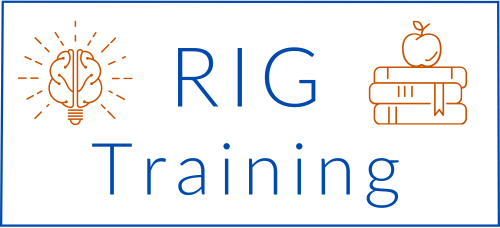Researcher Riddle: Introduction to Research Integrity in French / Introduction à l’intégrité scientifique : Testez vos connaissances !
Published in Healthcare & Nursing, Astronomy, and Social Sciences

Our very first Researcher Riddle covered research integrity in broad strokes, as discussed in our Introduction to Research Integrity course. We are happy to announce that this course can now reach a wider audience as multiple internal Springer Nature teams have come together to translate this popular course into French! In keeping with the theme, this post is also bilingual – the French version follows the English text.
The Introduction to Research Integrity course covers the very basics of research integrity, from designing your research project right through to writing a manuscript and ensuring you pick a publisher who matches your integrity standards. This course is written to help all researchers feel confident that their project and manuscript are aligned with industry best practice, which is why we are thrilled to have partnered with colleagues across the company to bring this course to French-language researchers. The course also features tailored content and links that are better suited to the French-language research landscape. As a result, the course is relevant to all French speakers across the world. Before we discuss the course in-depth, have a go at this week’s scénario français:
A research group based at the University of Montpellier in France is designing a project to conduct research into innovative and climate-resilient small-scale farming in rural communities. They propose a cross-country study, hoping to conduct research in rural areas of both France and in Madagascar, and plan to take samples of plant material from both sites and interview farmers/landowners about their practices. Some of the farms of interest to the researchers are on protected land. They would like to partner with researchers from the University of Antananarivo in Madagascar and are hoping to acquire funding from the French National Centre for Science (Centre national de la recherce scientifique, CNRS), as well as the French Agricultural Research Centre for International Development (Centre de coopération internationale en recherche agronomique pour le développement, CIRAD). Which of the following would we expect to see in the eventual submitted manuscript as hallmarks of research integrity? Select all that apply.
A: Ethics approval from the University of Montpellier
B: Ethics approval from the University of Antananarivo
C: Informed consent to participate forms from farmers and/or landowners
D: Statement detailing the sustainability measures taken by the researchers, such as booking flight tickets with promotions that offset the carbon footprint of the journey by planting a tree
E: Ethics declaration within the text of the manuscript, stating compliance with international, national and institutional guidelines regarding both working with human participants and any potential plants and/or agricultural methods used that fall under legislation
F: Statement detailing the project’s compliance with the Nagoya Protocol on Access to Genetic Resources and the Fair and Equitable Sharing of Benefits Arising from their Utilization to the Convention on Biological Diversity

[Image description: photograph of a field with the sun hanging low in the background]
The correct answers are A, B, C and E!
As this research project works with both plant material and human participants, ethics approval from both universities involved would be mandatory to ensure that the study adhered to the ethical standards of both institutions. In this project, the researchers would need farmers in both locations to participate in the research, and as such we would want to see informed consent to participate forms indicating the farmers’ willingness to take part in the project. If the manuscript included any identifiable information or images, we would, of course, also require informed consent to publish. Finally, this manuscript should contain an ethics declaration stating compliance with all international, national and institutional guidelines that legislate research with humans and any plant material or agricultural methods. One such guideline is the Nagoya Protocol, mentioned in option F. Whilst we would want to see evidence of the project’s compliance with the Nagoya Protocol, an ethics declaration as described in option E would cover a wider range of levels of regulation and would include this protocol as well as any other relevant guidelines.
Option D is incorrect as, whilst such a statement would be a commendable demonstration of environmental responsibility, it is not an integrity requirement for manuscripts at this time.
New course: Introduction to Research Integrity in French
To aid French-speaking researchers navigate the research integrity landscape, the Springer Nature Research Integrity Group (SNRIG) now offers this introductory course in French, including the following features:
- All the basics of research and publication ethics
- Information regarding best practice and the potential consequences of not adhering to established standards
- Practical guidance and further information/reading for each topic
- Guidance and links tailored specifically to the French-language research landscape
All researchers are welcome to take both the English and French versions of this course, and we welcome any feedback at training@springernature.com.
Introduction à l’intégrité scientifique : Testez vos connaissances !
Nous sommes ravis d’annoncer que le cours sur l’Intégrité Scientifique destiné aux chercheurs est désormais disponible en français et est accessible à un public plus large !
Le cours Introduction à l’intégrité scientifique explore les bases de l’intégrité scientifique. Il accompagne les chercheurs à chaque étape : de la conception d’un projet de recherche à la rédaction d’un manuscrit, tout en veillant à choisir un éditeur respectant des standards d’intégrité rigoureux. Ce cours a pour objectif de renforcer la confiance des chercheurs en leur capacité à aligner leurs travaux et leurs manuscrits sur les bonnes pratiques en vigueur dans le domaine. Grâce à cette traduction, tous les chercheurs francophones, où qu’ils se trouvent dans le monde, ont désormais accès à un contenu adapté et à des ressources spécifiques au paysage scientifique en langue française.
Avant de découvrir les détails du cours, testez vos connaissances avec le scénario suivant :
Un groupe de recherche de l’Université de Montpellier prépare un projet sur l’agriculture à petite échelle innovante et résiliente au climat dans les communautés rurales. Ils envisagent une étude transnationale, avec des recherches menées dans des zones rurales en France et à Madagascar. Leur projet comprend le prélèvement d’échantillons de matériel végétal sur les deux sites ainsi que des entretiens avec des agriculteurs et propriétaires terriens pour recueillir des informations sur leurs pratiques. Certaines des fermes ciblées se situent sur des terres protégées. Le groupe de recherche souhaite collaborer avec des chercheurs de l’Université d’Antananarivo à Madagascar et solliciter des financements auprès du Centre national de la recherche scientifique (CNRS) et du Centre de coopération internationale en recherche agronomique pour le développement (CIRAD).
Selon vous, quels éléments devraient figurer dans le manuscrit final pour garantir le respect de l’intégrité scientifique ? Sélectionnez toutes les réponses applicables :
A : Approbation éthique de l’Université de Montpellier.
B : Approbation éthique de l’Université d’Antananarivo.
C : Formulaires de consentement éclairé signés par les agriculteurs et/ou propriétaires terriens.
D : Déclaration décrivant les mesures de durabilité adoptées telles que l’achat de billets d’avion via des programmes compensant l’empreinte carbone par la plantation d’arbres.
E : Déclaration éthique dans le manuscrit attestant du respect des réglementations internationales et nationales.
F: Déclaration détaillant la conformité du projet au Protocole de Nagoya sur l’accès aux ressources génétiques et le partage juste et équitable des avantages découlant de leur utilisation dans le cadre de la Convention sur la diversité biologique.

[Description de l’image : photographie d’un champ avec le soleil bas à l’horizon en arrière-plan]
Les réponses correctes sont A, B, C et E !
Comme ce projet de recherche implique à la fois du matériel végétal et des participants humains, une approbation éthique des deux universités concernées est obligatoire afin de garantir que l’étude respecte les normes éthiques de chaque institution. Dans ce projet, les chercheurs auraient besoin de la participation des agriculteurs des deux sites, et il serait donc nécessaire d’inclure des formulaires de consentement éclairé, indiquant leur volonté de participer au projet. Si le manuscrit contenait des informations ou images identifiables, il faudrait bien entendu obtenir un consentement éclairé pour leur publication. Enfin, le manuscrit devrait comporter une déclaration éthique attestant du respect de toutes les directives internationales, nationales et institutionnelles encadrant les recherches impliquant des humains, du matériel végétal ou des méthodes agricoles. Parmi ces directives figure le Protocole de Nagoya, mentionné dans l’option F. Bien que la conformité au Protocole de Nagoya soit importante, une déclaration éthique telle que décrite dans l’option E couvrirait un éventail plus large de réglementations, incluant ce protocole ainsi que d’autres lignes directrices pertinentes.
L’option D est incorrecte, car bien qu’une telle déclaration reflète une responsabilité environnementale louable, elle ne constitue pas une exigence actuelle en matière d’intégrité scientifique pour les manuscrits.
Introduction à l’intégrité scientifique
Pour aider les chercheurs francophones à naviguer dans le paysage de l’intégrité scientifique, le Springer Nature Research Integrity Group (SNRIG) propose désormais ce cours introductif en français, comprenant les éléments suivants :
- Les bases essentielles de l’éthique en recherche et en publication.
- Des informations sur les bonnes pratiques et les conséquences potentielles du non-respect des normes établies.
- Des conseils pratiques ainsi que des ressources et lectures complémentaires pour chaque sujet.
- Des recommandations et des liens adaptés au contexte de la recherche francophone.
Tous les chercheurs sont invités à suivre ce cours disponible en anglais et en français. N’hésitez pas à partager vos commentaires à l’adresse suivante : training@springernature.com.


Please sign in or register for FREE
If you are a registered user on Research Communities by Springer Nature, please sign in